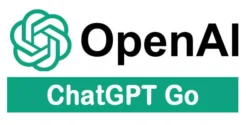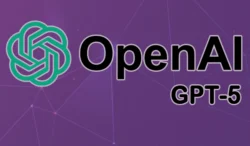
MOUNTAIN VIEW, Calif. - Sep 08, 2025 (UTC) - Google announced Monday that its AI Mode, the company’s most advanced AI-powered search experience, will now support five additional languages, marking the first major expansion beyond English since the feature’s launch six months ago.
Breaking the Language Barrier
The expansion includes Hindi, Indonesian, Japanese, Korean, and Brazilian Portuguese, significantly broadening access to Google’s sophisticated AI search capabilities for users worldwide. The announcement represents a strategic milestone for Google as it competes with AI search platforms including Perplexity and OpenAI’s ChatGPT Search.
“With this expansion, more people can now use AI Mode to ask complex questions in their preferred language, while exploring the web more deeply,” said Hema Budaraju, VP of Product Management at Google Search, in a blog post announcing the update.
Technical Foundation and Global Approach
Google emphasized that the language expansion goes beyond simple translation, requiring sophisticated localization efforts. The company leveraged its custom version of Gemini 2.5, which features advanced multimodal and reasoning capabilities, to ensure culturally relevant and locally useful search results.
“Building a truly global Search goes far beyond translation — it requires a nuanced understanding of local information,” Google stated in its official blog post. “With the advanced multimodal and reasoning capabilities of our custom version of Gemini 2.5 in Search, we’ve made huge strides in language understanding, so our most advanced AI search capabilities are locally relevant and useful in each new language we support.”
Rapid Global Expansion Timeline
The language expansion follows Google’s aggressive rollout strategy for AI Mode throughout 2025. Initially launched as an experiment for Google One AI Premium subscribers in March, the feature was limited to the United States before expanding to the United Kingdom and India in June.
Last month, Google accelerated its global expansion by making AI Mode available in 180 new markets in English, demonstrating the company’s commitment to widespread adoption of its AI search technology.
Enhanced Features and Premium Capabilities
AI Mode utilizes a customized version of Gemini 2.5 and offers sophisticated multimodal and reasoning capabilities that allow users to ask complex, multi-part questions. The feature is accessible through a dedicated tab on search results pages and a button in the search bar.
In August, Google introduced advanced agentic features to AI Mode, enabling capabilities such as finding restaurant reservations, with plans to add support for local service appointments and event ticket bookings. However, these premium features remain limited to Google AI Ultra subscribers in the United States, available through the “Agentic capabilities in AI Mode” experiment in Google Labs. The Ultra tier costs $249.99 per month.
Strategic Competition and Future Plans
Google’s AI Mode represents the company’s direct response to growing competition from AI-powered search platforms. The feature positions Google to maintain its search dominance while adapting to user expectations for conversational AI interactions.
Industry observers note that Google appears to be positioning AI Mode as potentially becoming the default search experience. Logan Kilpatrick, group product manager at Google DeepMind, indicated on social media platform X that the company is working toward making this AI-led search experience the default “soon.”
Market Impact and Industry Concerns
The expansion comes amid ongoing debates about AI search features’ impact on website traffic and traditional search economics. Critics argue that Google’s AI updates, including AI Mode and AI Overviews, are reducing clicks to publisher websites by providing comprehensive answers directly in search results.
However, Google pushed back against these concerns last month, denying that its AI search features are significantly impacting website traffic patterns. The company maintains that its AI enhancements complement rather than replace traditional search results.
Global Accessibility and User Experience
The multi-language rollout reflects Google’s broader strategy to make advanced AI capabilities accessible to diverse global audiences. By supporting major languages including Hindi (spoken by over 600 million people), Japanese, Korean, Indonesian, and Brazilian Portuguese, Google is targeting some of the world’s largest internet user bases.
Users can access AI Mode by visiting google.com/ai, where they can experience the enhanced search capabilities in their preferred language. The expansion enables millions of additional users to engage with complex, conversational search queries that go beyond traditional keyword-based searches.
Looking Ahead
The language expansion represents a significant step in Google’s vision for AI-powered search becoming mainstream. As the company continues to refine its AI capabilities and expand global availability, the success of this multi-language rollout will likely influence the pace of future expansions and feature developments.
The move also signals Google’s commitment to maintaining its competitive edge in the rapidly evolving AI search landscape, where user experience and global accessibility are becoming increasingly critical differentiators.





